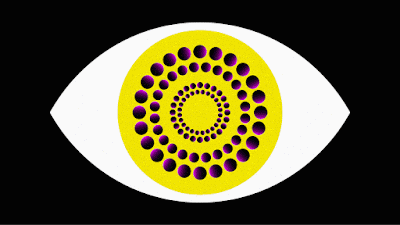The topic that interests me the most is the idea of unconscious bias towards certain social groups without realising it. It sparks my interest mostly because the research suggests that we might be unconscious of our deepest prejudices and therefore not able to act on them accordingly. There is no improvement without acknowledgement. (American Psychological Association, 2016)
According to Implicit measures of attitudes: “almost 90% of test-takers have an implicit pro-white bias” and “more than 80% of heterosexuals display an implicit bias against gays and lesbians (Wittenbrink & Schwarz, 2007)”. The above findings are according to the Implicit Association Test carried out including brain scans and involuntary reactions of the amygdala in the brain. The high percentage numbers highly surprised me because according to the official media, the percentage of people with discriminatory feelings towards minorities are lower by more than half. (American Psychological Association, 2007)
Social psychology is one of the psychological studies that would have the power to shed the light on the subject as the social psychology examines how the thoughts, feelings, and behaviours of individuals are influenced by the actual, imagined, and implied presence of others as well as the surroundings. I believe social psychology could examine the impact of one’s culture, country of origin, the government attitude, family as well as individual’s personality traits and how all the above impacts the involuntary bias towards certain groups. Social Psychology might help in fighting the discrimination by spreading the knowledge of involuntary bias and changing our behaviours because the unconscious in our brain impacts our everyday decisions. (American Psychological Association, 2015)
According to a Guardian article by Hannah Devlin, “If you’re aware of these associations then you can bring to bear all of your critical skills and intelligence to see it’s wrong to think like that.” The key to any major social change is broad knowledge and spreading the message to the authorities and the government to acknowledge the situation and implement changes in our system. (American Psychological Association, 2011)
___________________________________________
First Memory
It was a perfect hot summer day. As always I was spending it with my grandpa and grandma in the garden, when my grandpa had a brilliant idea. I remember the glee when he asked me, if I wanted to take a ride with him on his favourite green bike. I sat on the trunk of the bicycle, wrapping my tiny hands around the saddle. My grandpa started pedalling and soon we were riding at full speed down the neighbourhood street, wind blowing in my auburn hair. I remember wearing my favourite green summer dress, a bucket hat and blue plastic flip flops with a flower on them.
Suddenly I felt a terrible pain in my ankle and when I looked down, to my surprise my foot got in between the spokes of the bicycle. I screamed and my grandpa stopped the bike not without some effort. After some time, my dad came from work and drove me to the hospital where they put the cast on. I have a clear memory of this day, however, not because it was terrible.
Despite having to go to hospital and being injured, I remember this day positively. It was one of my first memories with my grandpa, who had passed away. I like this memory because I remember the day being so sunny I can almost feel the sunshine on my face and smell the plastic material of the small swimming pool in the garden. I have a memory of my favourite grandpa and grandma at their best health and happy during summer spending time with me.
The unpleasant part of the day shows the reckless part of my grandpa and reminds me of the fact that we all are human and are allowed to make unwise decisions. The fear from getting hurt or injured should not prevent us from experiencing our lives fully.


